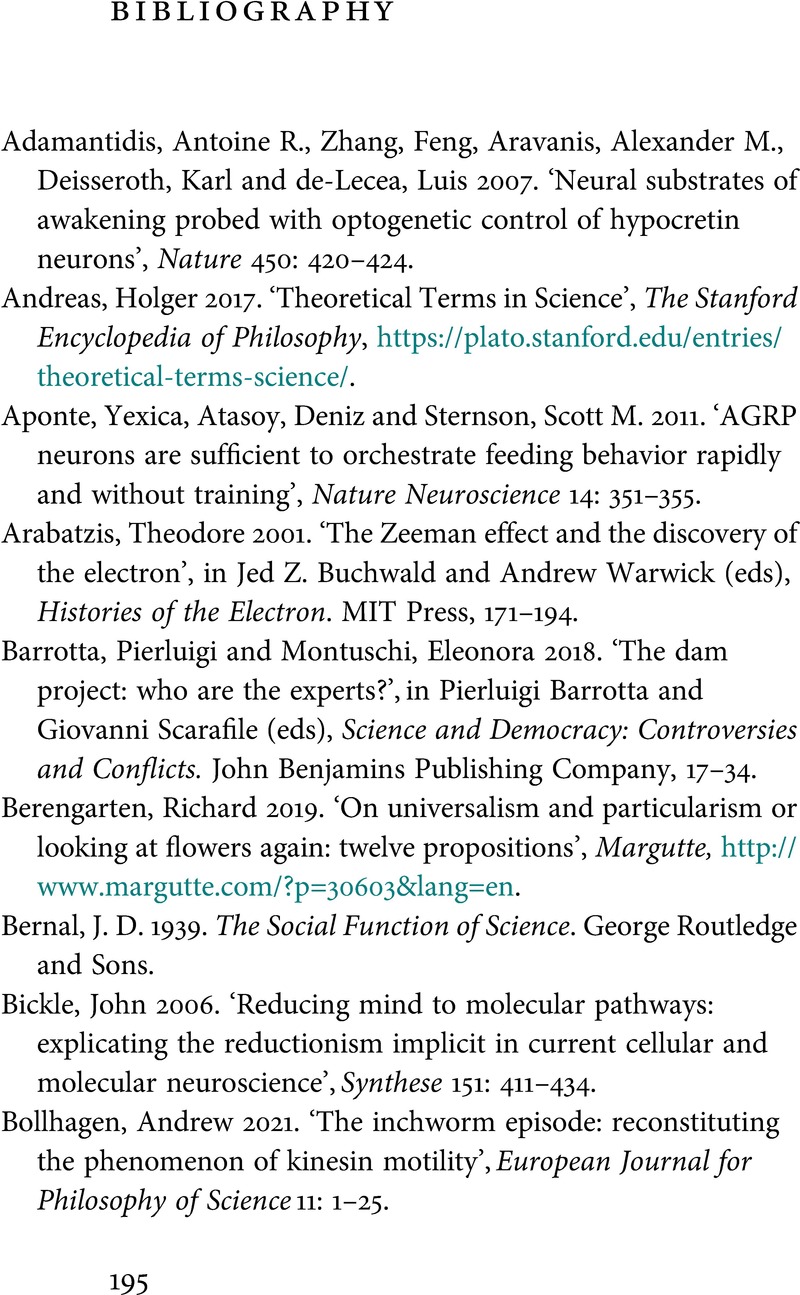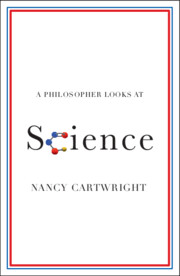Book contents
- A Philosopher Looks at Science
- A Philosopher Looks at
- A Philosopher Looks at Science
- Copyright page
- Dedication
- Contents
- Figures
- Acknowledgements
- Introduction
- 1 Theory + Experiment Do Not a Science Make
- 2 Dethroning the Queen
- 3 A Nature More Negotiable
- Parting Thoughts
- Notes
- Bibliography
- Index
- References
Bibliography
Published online by Cambridge University Press: 10 June 2022
- A Philosopher Looks at Science
- A Philosopher Looks at
- A Philosopher Looks at Science
- Copyright page
- Dedication
- Contents
- Figures
- Acknowledgements
- Introduction
- 1 Theory + Experiment Do Not a Science Make
- 2 Dethroning the Queen
- 3 A Nature More Negotiable
- Parting Thoughts
- Notes
- Bibliography
- Index
- References
Summary

- Type
- Chapter
- Information
- A Philosopher Looks at Science , pp. 195 - 201Publisher: Cambridge University PressPrint publication year: 2022

